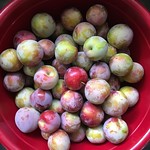Artichoke
The artichoke, an edible flower bud from the thistle family, possesses a history as unique as its appearance. Its culinary use dates back to ancient times. The Greeks and Romans recognized it for both its distinctive taste and purported medicinal properties. Theophrastus described the artichoke in his "Enquiry into Plants" in the third century BC. Artichokes became a delicacy among the Italian nobility during the early renaissance, and even enjoyed a starring role in "Le Viandier," one of the oldest recorded cookbooks, penned by Guillaume Tirel in the 14th century.
Nutritionally, artichokes are a powerhouse. They are rich in fiber, vitamins C and K, folate, and a variety of essential minerals like magnesium and potassium. Artichokes are also renowned for their high antioxidant content, particularly a compound called cynarin, which is believed to promote liver health and aid digestion. In the 16th century, the famed botanist and physician Pietro Andrea Mattioli highlighted these health benefits in his discourses, which significantly bolstered the vegetable's popularity.
Artichokes feature in a range of dishes across global cuisines. The heart, the most tender part, is often savored on its own, while the leaves are usually used for dipping into sauces or spreads. In Italian cooking, artichokes might be stuffed with breadcrumbs, garlic, and herbs, or thinly sliced and fried to a crisp for the Roman-Jewish classic, carciofi alla giudia . Meanwhile, the French are known for their barigoule, a traditional Provençal dish where artichokes are braised with vegetables such as onions, garlic, and/or carrots in a tangy white wine broth. Artichokes also make a bold, flavorful addition to pasta, risotto, and pizza.
Artichokes are truly unique among commonly consumed vegetables. Not only is their structure distinct - a bud comprising layers of petals protecting the precious heart and creamy, pulpy bottom - but also their preparation and consumption require a more hands-on, intimate experience. You peel back the layers, almost in a ritualistic manner, to reveal the essence within.
Highlights
- Artichoke is a good source of several nutrients, including Iron, Magnesium, Phosphorus, Vitamin C, Folate, and Vitamin K
 eat a plum
eat a plum